Nectin-4: ADC Target Protein for Cancer Research
The biologics license application (BLA) has been accepted for Enfortumab Vedotin for the treatment of locally advanced or metastatic urothelial carcinoma in patients who have previously received PD-1/PD-L1 inhibitors and platinum-containing chemotherapy. Enfortumab Vedotin is the first domestically submitted targeted antibody-drug conjugate that specifically targets Nectin-4.
Enfortumab vedotin-ejfv (PADCEV®) is a first-in-class antibody-drug conjugate (ADC) that targets Nectin-4, a cell surface protein highly expressed in bladder cancer. Preclinical data suggest that the anticancer activity of Enfortumab Vedotin is attributed to its binding to cells expressing Nectin-4, followed by internalization and release of the anti-tumor agent monomethyl auristatin E (MMAE) into the cell. This is believed to inhibit cell proliferation (cell cycle arrest) and induce programmed cell death (apoptosis).
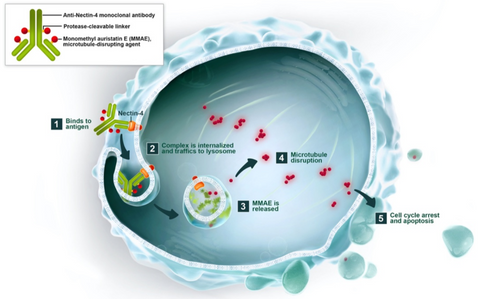
Nectin-4, also known as Poliovirus Receptor-Like 4 (PVRL4), is a type I transmembrane protein and a member of the Nectin-like cell adhesion molecule family. Nectin-4 is highly expressed in normal embryonic and fetal tissues, but its levels decrease in adulthood, and its distribution in healthy tissues is limited. However, abnormal expression of Nectin-4 has been observed in several common cancer types, including bladder cancer, breast cancer, lung cancer, pancreatic cancer, and ovarian cancer. In the PI3K-AKT signaling pathway, Nectin-4 promotes cancer cell proliferation and metastasis by activating WNT-β-catenin and Rac small G proteins. Nectin-4 also interacts with the tyrosine kinase receptor ERBB2, promoting its activation and stimulating the PI3K-AKT signaling pathway. Therefore, Nectin-4 has emerged as an important target for the treatment of various solid tumors[1].
Currently, Enfortumab Vedotin is the only ADC (Antibody-Drug Conjugate) targeting Nectin-4 that is approved and marketed worldwide. There are only 10 global pharmaceutical companies conducting research on Nectin-4-targeting drugs.
BetaLifeScience provides Nectin-4 target proteins to meet the needs of different stages, such as Nectin-4-targeted drug development, functional evaluation, and quality control.
Sample Product Data
(Activity) Validated by ELISA

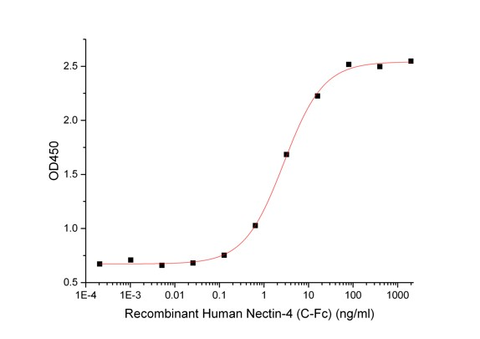
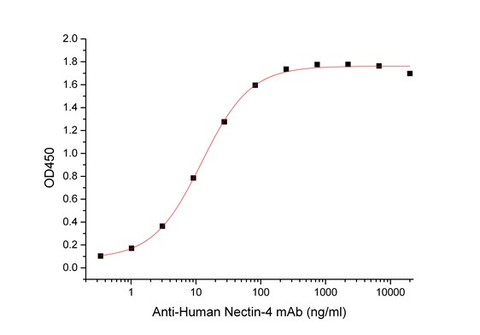
(Activity) Validated by BLI
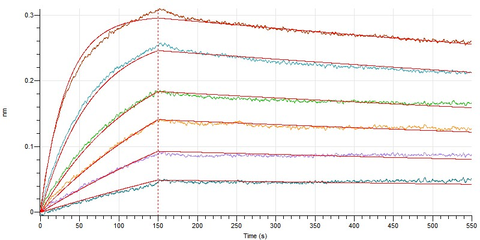
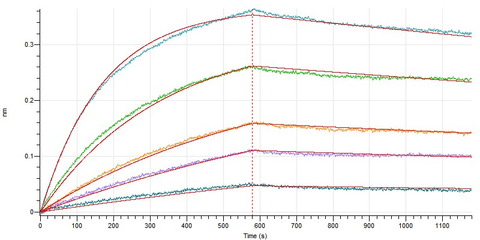
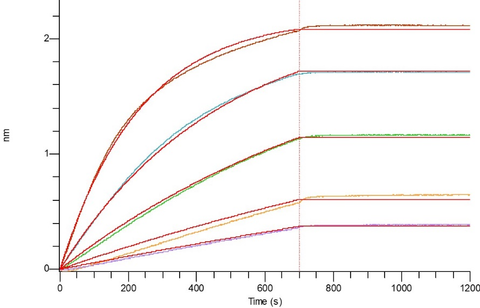
Recommended Nectin-4
|
Cat. No. |
Product Name |
|
Recombinant Human Nectin-4 (C-6His) |
|
|
Recombinant Human Nectin-4 (C-Fc) |
|
|
Recombinant Human Nectin-4 (C-mFc) |
|
|
Biotinylated Human Nectin-4 (C-6His-Avi) |
|
|
Recombinant Mouse Nectin-4 (C-6His) |
|
|
Recombinant Mouse Nectin-4 (C-Fc) |
|
|
Recombinant Cynomolgus Nectin-4 (C-6His) |
|
|
Recombinant Cynomolgus Nectin-4 (C-Fc) |
References
[1] https://www.seagen.com/
[2] Heath, Elisabeth I, and Jonathan E Rosenberg. “The biology and rationale of targeting nectin-4 in urothelial carcinoma.” Nature reviews. Urology vol. 18,2 (2021): 93-103. doi:10.1038/s41585-020-00394-5












